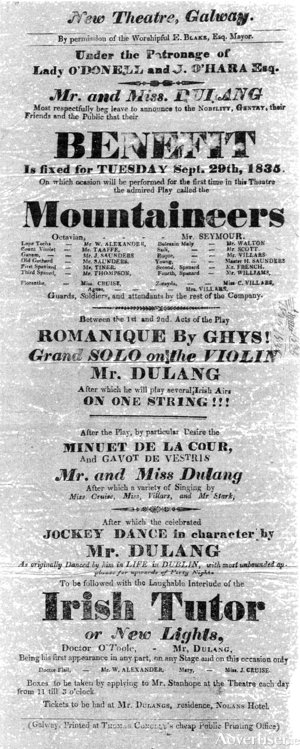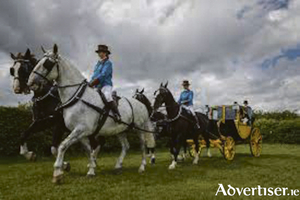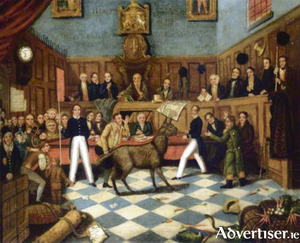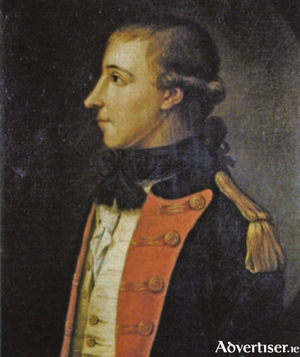Search Results for 'Elizabeth Vesey'
5 results found.
Galway’s early association with the theatre

We know from the Corporation record books that theatrical performances were given in the Tholsel, the Town Hall of the day, as far back as 1619-20. These groups of ‘strolling players' were usually sponsored by local gentry and were regarded as an important feature of festive gatherings.
‘One of the most extraordinary persons’ Maria Edgeworth ever met

As the legendary Colonel Richard Martin neared the end of his life in Boulogne, where he had fled to escape his numerous creditors, a large four-horse carriage, on which two postilions, in jackets of dark-blue frieze, guided the coach on horse-back, arrived at the front door of Ballynahinch. It was dark, and its occupants were in a state of near exhaustion.
The turbulent life of Col Richard Martin MP - In three acts

Week IV. Further humiliation was heaped upon Colonel Richard Martin, who sought redress for the ‘dishonour to his bed, the alienation of his wife’s affection, the destruction of his domestic comfort, the suspicion cast upon the legitimacy of the wife’s offspring, and the mental anguish which the husband suffers’ (such was the legal language of the day), during his divorce trial against John Petrie, to be awarded only £10,000., exactly half of the £20,000. which he felt justified in demanding.
‘The best security for the honour of a wife, is prudence on the part of the husband.’

Week III. It took two years since Col Richard Martin’s wife Eliza eloped with John Petrie, a merchant, before the long process of divorce in the 18th century could begin. It promised to be a sensational case given the status of Martin, a larger than life character, one of the largest landowners in Ireland, his reputation as duellist, and his enormous popularity for his gift of mimicry and acting.
Theobald Wolfe Tone - A hero without blemish

The Criminal Conversation case taken by Richard Martin against John Petrie, in 1791, the seducer of his wife Eliza, which was extensively covered in the newspapers of the time, and no doubt read with enormous enjoyment by society in both England and Ireland, nevertheless, did not go entirely in Martin’s favour.

